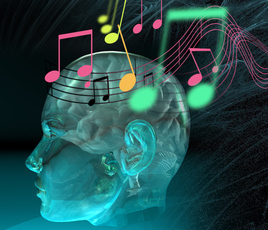Driving while stressed can be as distracting and dangerous as talking on your mobile phone, according to a study by Queensland University of Technology (QUT).

Ides Wong
Ides Wong, from QUT’s Centre for Accident Research & Road Safety – Queensland (CARRS-Q), studied 75 drivers aged 17 to 47 to investigate the negative impact anxiety had on driver performance.
“Being anxious makes drivers unable to fully focus their attention on the road, particularly in urban areas, where there are plenty of distractions and when time pressured,” said Ms Wong, whose research was awarded the top RACQ Road Safety Prize. [continue reading…]
Understanding the mind of the elite athletes We know them for what they can do from the neck down. But what about their minds? Scientific American has an interesting article on why we excel at some activities and not at others
Over the last few decades science has started to look inside the mind of the athlete. What they have found is a brain not athlete

Image: iStockphoto
only finely tuned for the demands of their particular sport, but one that may also carry a mental advantage to situations beyond the sports field. This research also provides a unique context for studying novel and important questions about the human mind, such as how the mind and body work together to rewire brain circuits over years of practice. continue reading
Source: Scientific American
The New York Times asks whether there was ever a more apt description than “nervous breakdown”
Decades ago modern medicine all but stamped out the nervous breakdown, hitting it with a combination of new diagnoses, new psychiatric drugs and a strong dose of professional scorn. The phrase was overused and near meaningless, a self-serving term from an era unwilling to talk about mental distress openly.
But like a stubborn virus, the phrase has mutated.
In recent years, psychiatrists in Europe have been diagnosing what they call “burnout syndrome,” the signs of which include “vital exhaustion.” A paper published last year defined three types: “frenetic,” “underchallenged,” and “worn out” (“exasperated” and “bitter” did not make the cut). continue
reading
Source: New York Times



